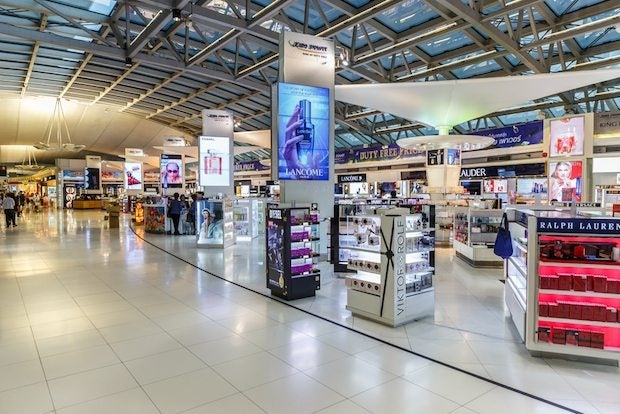
A King Power duty-free store in Bangkok. (Shutterstock)
With a huge number of gray-market sellers on its Tmall and Taobao platforms, online e-commerce giant Alibaba has long been able to profit from Chinese consumers’ efforts to avoid high tariffs on luxury goods sold on the mainland. Now that the company is facing pressure to crack down on unauthorized sellers on its sites, it’s finding new ways to benefit from Chinese demand for lower prices through partnerships with international duty-free sellers.
Alibaba’s Tmall.hk recently teamed up with South Korea's Shilla and Thailand's King Power duty-free retailers to provide a service that allows online shoppers to buy items ahead of time and pick them up in the airport stores when they travel. They’re required to provide passport and ticket information when they buy the items online, and then present payment text messages to the stores to claim the items.
The new partnership gives Alibaba an opportunity to benefit from Chinese shopping outside the mainland—which comprises an estimated two-thirds of all Chinese luxury purchases—without relying on daigou sales that have long caused headaches for high-end brands. As Alibaba works to attract more premium brands to set up official shops on Tmall, it has been striving to show that it’s cutting down on unauthorized sellers of gray market goods and fakes on its platforms. Experts have noted that the number of gray-market sellers of Burberry goods on Taobao and Tmall declined dramatically after the brand opened an official Tmall shop, prompting speculation that the company is incentivizing brands to join the platform by removing more daigou sellers for those that sign up.
Aside from Burberry, few other luxury brands have taken the Tmall plunge, meaning that Alibaba will have to find other ways to benefit from luxury goods sales if it removes more unauthorized shops. Since South Korea and Thailand have both been hotbeds for Chinese duty-free shopping, the new partnerships provide the company with a key opportunity to profit from global Chinese shopping in a way that is mutually beneficial for both brands and Alibaba.
While the sales from new partnerships likely won’t match the booming daigou market to start, their success is promising. Chinese luxury consumers often do extensive research online before they shop abroad and already know what they want to buy. As a result, many will be likely to take advantage of the convenience of ensuring availability and making shopping time more efficient while on the way to catch a flight.